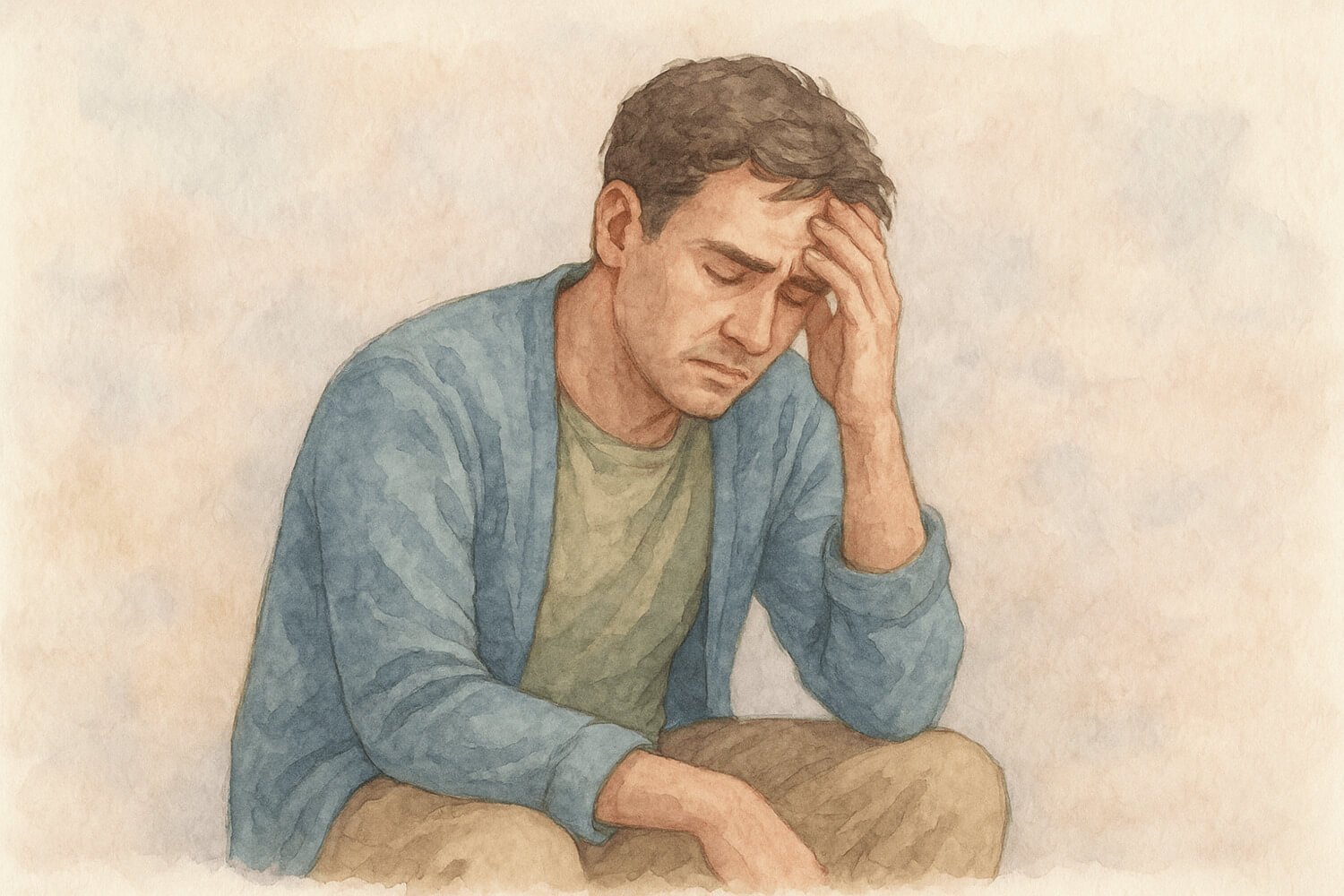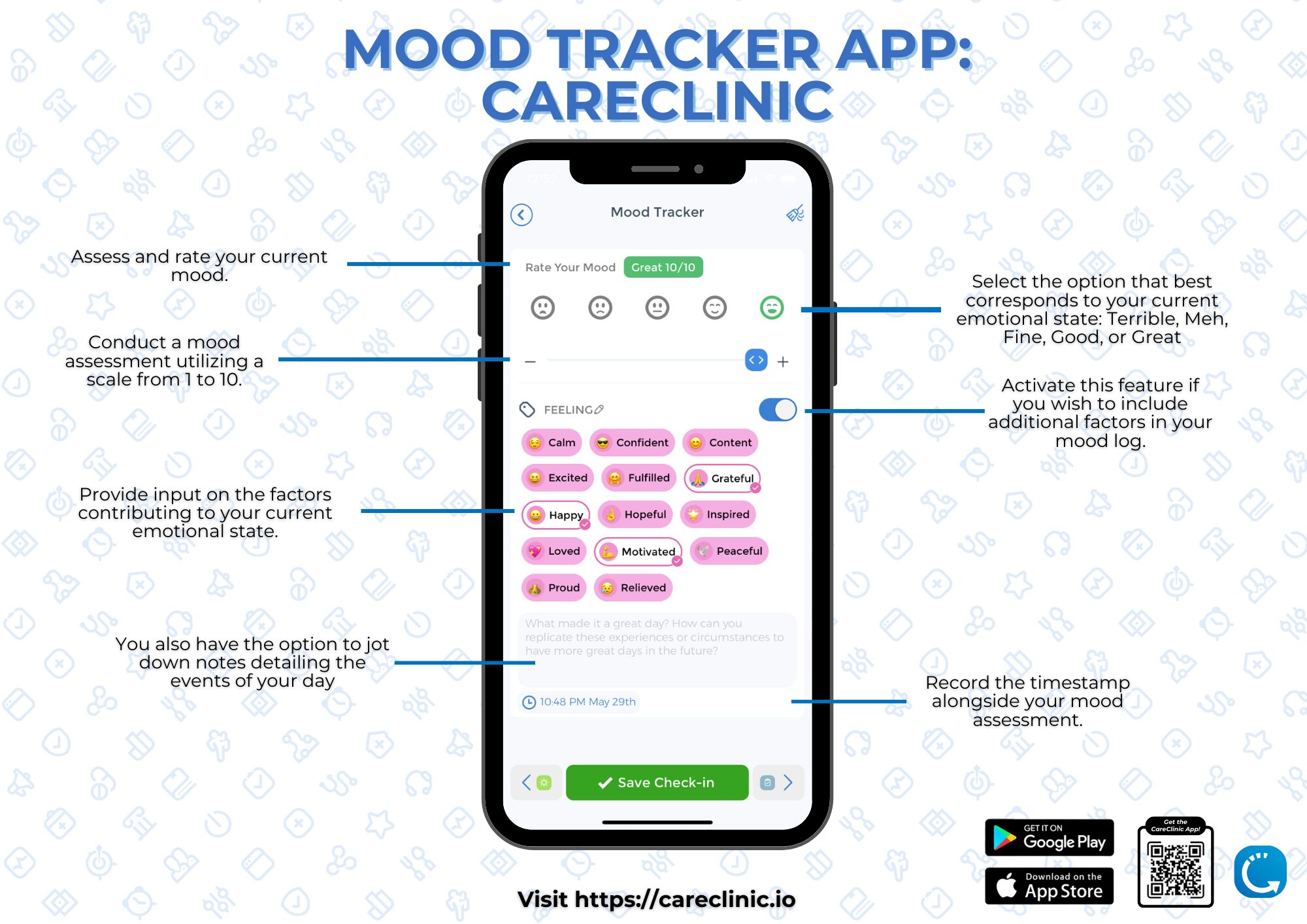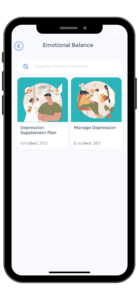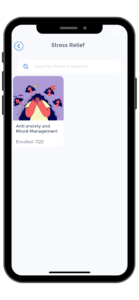
Your mental health tracking journey begins with a single daily check-in, but it can grow into something much more powerful. CareClinic helps you build a personalized system that captures your unique patterns. Whether you’re managing anxiety, tracking mood swings, or working through therapy, having the right tools makes all the difference.
Most people don’t realize how connected their mental health is to other daily habits. That morning coffee affects your anxiety levels. Your sleep quality determines tomorrow’s mood. Even the weather plays a role in how you feel.

Starting Simple: Basic Mood Tracking

Begin with CareClinic’s mood tracker app that uses a simple 1-10 scale for quick daily entries. You can add custom tags like “stressed at work” or “great workout” to capture context. The app sends gentle reminders at your chosen time, maybe 8 PM when you’re winding down.
Some days you’ll want to dive deeper than just a number. That’s where an emotion journal becomes valuable. Write a few sentences about what triggered certain feelings. CareClinic lets you attach photos, voice notes, or even weather data to your entries.
In CareClinic’s mood tracker, you’ll find the Quick Mood button on your home screen. Tap it to rate your mood from 1-10. The app remembers your common tags like “work stress” or “good sleep” for faster logging. You can also add a photo of something that influenced your mood that day.
If you prefer guided prompts, the feelings journal with prompts asks specific questions like “What made you smile today?” or “What challenged you?” These prompts help when you’re stuck or new to journaling. Many users find that answering just three questions daily builds a sustainable habit.
The beauty of starting simple lies in building consistency first. Once you’ve logged moods for a week, CareClinic shows your first insights. You might notice Monday blues or weekend happiness patterns. These early discoveries motivate continued tracking.
Managing Specific Mental Health Conditions
When anxiety becomes overwhelming, tracking helps you spot patterns. CareClinic’s anxiety journal includes specific fields for physical symptoms like a racing heart or sweaty palms. You can rate anxiety intensity and log what helped you cope. Over time, you’ll see which techniques work best for your unique anxiety triggers.

The anxiety tracker in CareClinic goes beyond basic logging. You can track anxiety attacks by location, time of day, and preceding activities. This detailed data helps identify specific triggers. One user discovered their anxiety peaked 30 minutes after caffeine consumption, leading to a simple but life-changing adjustment.
Depression tracking requires different tools from general mood logging. The depression symptom tracker monitors energy levels, sleep changes, and appetite shifts. You can track medication effectiveness, too. Set reminders for self-care activities that boost your mood, like a 10-minute walk or calling a friend.
CareClinic’s depression module includes PHQ-9 assessments you can take weekly. These standardized questionnaires help measure depression severity objectively. Your results graph over time, showing whether treatments work. Share these reports with your psychiatrist for more informed medication decisions.
For those managing bipolar disorder, mood swings need careful monitoring. The bipolar mood tracker captures both manic and depressive episodes with customizable severity scales. Track sleep hours closely since changes often signal mood shifts. The app can alert you when patterns suggest an episode might be starting.
Bipolar tracking in CareClinic uses a specialized mood scale from -5 (severe depression) to +5 (mania). You can log mixed episodes too. The app’s pattern recognition often spots episode triggers weeks before they fully develop. This early warning system helps many users prevent full episodes through timely intervention.
Therapy Integration and Advanced Techniques
Working with a therapist? CareClinic’s CBT tracker app helps you practice cognitive behavioral therapy between sessions. Log automatic thoughts, identify cognitive distortions, and reframe negative thinking patterns. The thought diary feature lets you challenge unhelpful beliefs step by step.
The CBT tracker includes common cognitive distortions like all-or-nothing thinking, mind reading, and catastrophizing. When you log a negative thought, the app prompts you to identify which distortion applies. Then it guides you through evidence for and against the thought. This structured approach makes CBT homework more manageable.
Many therapists now ask clients to use CareClinic between sessions. The app’s thought records follow standard CBT format: situation, thoughts, emotions, and balanced responses. You can share specific entries with your therapist or export weekly summaries. This continuity accelerates therapy progress significantly.
Dialectical behavior therapy requires tracking different skills. The DBT diary includes modules for distress tolerance, emotion regulation, and interpersonal effectiveness. Rate your urges on a scale and log which DBT skills you used. Share these insights with your therapist to maximize session effectiveness.
CareClinic’s DBT features include skill reminders throughout the day. When you feel distressed, the app suggests appropriate TIPP techniques or distraction methods. You can track which skills work best for different situations. Over time, this builds a personalized DBT toolkit based on real effectiveness data.
A general therapy journal captures insights between appointments. Write about breakthrough moments or challenging homework assignments. CareClinic lets you create private entries your therapist won’t see, plus shareable entries for session discussion. Tag entries by topic to find patterns over time.
Building Positive Mental Health Habits
Gratitude changes brain chemistry when practiced consistently. The gratitude journal app sends evening reminders to list three good things from your day. Some users photograph moments of joy throughout the day. Research shows 21 days of gratitude journaling can shift your default mindset.
CareClinic’s gratitude feature goes beyond simple lists. You can rate gratitude intensity and add photos to entries. The app tracks gratitude themes over time. Users often discover they’re most grateful for simple things like morning coffee or pet cuddles. This awareness increases daily joy.
The gratitude module includes prompts for difficult days when finding positives feels hard. Questions like “What went better than expected today?” or “Who showed you kindness?” help shift perspective gently. Many users report that this feature helps most during depressive episodes.
Mindfulness grounds you in the present moment. Use CareClinic’s mindfulness journal after meditation sessions to note observations without judgment. Track meditation streaks and log which techniques feel most centering. Even five minutes daily makes a measurable difference in stress levels.
The mindfulness tracker includes guided breathing exercises for anxious moments. You can set random mindfulness bells throughout the day as awareness reminders. Log your present-moment observations in the journal. Users report increased emotional regulation after just two weeks of consistent practice.
Quality sleep forms the foundation of mental wellness. The sleep tracker monitors not just hours slept but sleep quality, dreams, and morning mood. Notice how your evening routine affects tomorrow’s mental state. CareClinic can correlate sleep data with mood ratings to show clear connections.
Sleep tracking in CareClinic captures comprehensive data: bedtime, wake time, night wakings, sleep quality, and morning mood. The app identifies your optimal sleep window based on mood data. Many users discover they need exactly 7.5 hours, not the assumed 8, for best mental health.
Creating Your Personalized Mental Health System
Start with one tracking method that feels manageable. Maybe it’s a simple mood check-in each night. After a week, add another layer like sleep tracking or gratitude journaling. Build slowly to avoid overwhelm.
CareClinic’s onboarding wizard helps identify which trackers benefit you most. Answer questions about your mental health goals and current challenges. The app suggests a starter tracking routine based on evidence-based practices. You can always add more trackers as you grow comfortable.
The key is finding your minimum effective dose of tracking. Some people need detailed logs while others thrive with simple check-ins. CareClinic adapts to your style. Start with whatever feels sustainable, knowing you can expand later.
CareClinic’s correlation features reveal surprising connections. You might discover that skipping lunch leads to afternoon anxiety spikes. Or that Tuesday therapy sessions improve your mood for three days afterward. These insights guide better self-care decisions.
The Insights tab shows your strongest correlations updated weekly. Green arrows indicate positive correlations, like exercise improving mood. Red arrows show negative patterns like alcohol worsening sleep. These visual cues make pattern recognition effortless.
Set realistic reminders that fit your schedule. A morning gratitude prompt at 7 AM might work perfectly. An evening mood check at 9 PM could become part of your bedtime routine. Consistency matters more than perfection.
CareClinic learns your routine and suggests optimal reminder times. If you consistently log mood at 8:47 PM, the app adjusts reminders accordingly. This adaptive scheduling increases tracking compliance significantly. You can snooze reminders on tough days without guilt.
Share relevant data with your mental health team. Export mood charts for psychiatrist appointments. Show anxiety patterns to your therapist. Having concrete data improves treatment discussions and medication adjustments.
The app generates professional reports formatted for healthcare providers. Include symptom trends, medication adherence rates, and correlation insights. Many providers appreciate this objective data alongside subjective experiences. Some even review reports during sessions for more targeted treatment.
Advanced Features for Deeper Insights
CareClinic’s factor tracking helps identify subtle influences on mental health. Track weather, menstrual cycles, work stress, or social activities. The app’s analytics engine finds correlations you might miss. One user discovered their mood dropped consistently two days before rain, allowing proactive self-care.
Custom factors let you track anything affecting your mental health. Create tags for specific triggers like “mother-in-law visit” or “project deadline.” Rate their impact on a scale. Over months, patterns emerge showing which life events most affect your wellbeing.
The medication effectiveness tracker shows how psychiatric medications perform over time. Log side effects alongside mood improvements. Track dosage changes and their impacts. This data helps psychiatrists make more informed prescribing decisions.
Supplement tracking reveals whether those expensive vitamins actually help. Many users discover that certain supplements, like magnesium or omega-3s, correlate with mood improvements. Others find no benefit and save money by stopping ineffective supplements.
Making It Sustainable Long-Term
Mental health tracking works best when it becomes automatic. Link new habits to existing routines. Check your mood while brushing your teeth. Journal during your morning coffee.
CareClinic’s habit-stacking feature suggests pairing trackers with established routines. If you always drink tea at 3 PM, add a mood check then. This piggybacking on existing habits dramatically improves tracking consistency.
The app celebrates milestones like 7-day tracking streaks or mood stability achievements. These small acknowledgments maintain motivation during difficult periods. Users report that these celebrations help them maintain tracking even during depressive episodes.
Celebrate small wins along the way. Notice when you catch negative thoughts faster. Appreciate mood stability streaks. Acknowledge when coping skills prevent anxiety spirals.
CareClinic’s progress reports highlight improvements you might overlook. Graphs show decreasing anxiety severity or increasing good mood days. These objective measures combat the negativity bias common in mental health conditions.
Remember that tracking serves your wellness, not the other way around. Skip days when needed without guilt. Adjust your system as life changes. What matters is having tools ready when you need them most.
The app includes a vacation mode for breaks from intensive tracking. Maintain simple check-ins without detailed logging pressure. Many users find this flexibility prevents tracking burnout and supports long-term engagement.
Real User Success Stories
Sarah, a 34-year-old teacher, started tracking after her anxiety diagnosis. Initially skeptical, she began with simple mood logs. After three months, she identified that Sunday evening anxiety stemmed from work preparation stress. By shifting lesson planning to Saturday mornings, her Sunday anxiety decreased by 70%.
Marcus used CareClinic’s bipolar tracking features after multiple hospitalizations. The app’s sleep tracking revealed that less than 6 hours of sleep for two consecutive nights preceded manic episodes. This early warning system helped him prevent three potential episodes through timely intervention.
Emma combined CareClinic with her CBT therapy for social anxiety. Thought tracking revealed her predictions about social disasters never materialized. After six months, her social anxiety scores decreased from severe to mild. Her therapist credits the consistent homework tracking for accelerated progress.
Your Next Steps
Your mental health journey is unique, but you don’t have to travel it alone. CareClinic provides the structure and insights while you bring the commitment to understanding yourself better. Start wherever feels right and let your tracking system evolve with you.
Download CareClinic and choose just one tracker to begin. Give yourself a week to establish the habit before adding more features. Remember, the goal isn’t perfect tracking but gaining insights that improve your mental wellness. Your future self will thank you for starting today.


